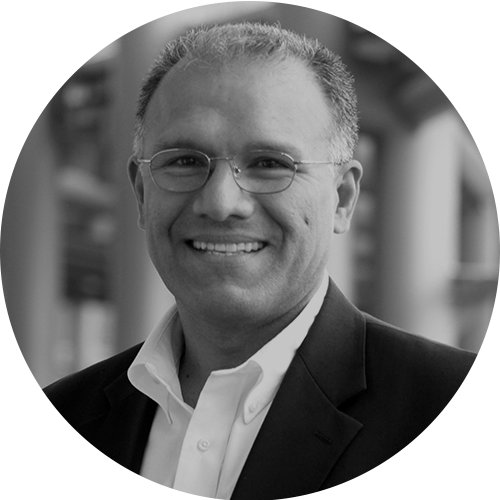Characteristics of a Global HR Leader
Last Updated January 26, 2022

Globalization is one of the most significant change agents impacting human resources, according to Enio Velazco, PhD, an adjunct faculty member in Villanova University’s Graduate Programs in Human Resource Development (HRD) and a 30-year veteran of the human resources field.
“Internationalization impacts the structure of a company,” Dr. Velazco said in Villanova’s Strategic & Global HR Leadership course, part of the online Graduate Certificate in HR Leadership program. “You’re dealing with different geographies, repatriation, learning and leadership development program, compensation and performance management.”
Globalization has forced some HR departments “to hire, develop, manage and transfer employees among several international facilities while ensuring legal compliance in different jurisdictions,” said Dr. Velazco.
It has also created a new set of challenges for HR professionals and added several characteristics and qualities necessary for successful HR leadership.
New Opportunities, New Challenges

“Everything is global. No one can say that they are not participating in the global environment.”
– Dr. Enio Velazco, Adjunct faculty member in Villanova University’s Graduate Program in Human Resource Development
Globalization and technological advances mean that consumers’ choices no longer are limited by the goods available at their local shop. By the same token, that local shop can sell its goods online to customers around the globe.
Businesses can expand into new markets in foreign countries with retail outlets, distribution centers and manufacturing facilities.
These new business opportunities create new challenges for the HR professional.
“Would you launch the same U.S. wellness program at all your international facilities? Or, would you have to change your recruiting practices to accommodate local customs?” Velazco wrote in a September 2018 article for Villanova’s HRD Corner blog.
Different languages, different customs and different ways of doing things — some subtle, some less so — can have a major impact on an organization’s fortunes in a new territory.
People Skills are a Must
There are hard skills essential for a successful global HR leader. One is the ability to navigate what Dr. Velazco calls “the organizational complexity necessary to successfully operationalize a business model across different countries.”
Other skills include addressing language barriers in the workplace, getting educated on applicable labor laws, learning local culture and customs and incorporating that knowledge into your organization’s culture.
However, social skills, such as being sensitive to cultural differences, may be just as important.
“Companies don’t pay enough attention to people skills,” global leadership consultant Ernest Antoine said in a video featured in the Strategic & Global HR Leadership course.
“In order to be able to identify the right people, first make sure these people are quite skillful in their profession. Make sure they’ve got the people skills,” Antoine said, recommending the Global Competency Inventory, a self-assessment that measures competencies in three categories: perception management, relationship management and self-management.
Those categories are reflected in Antoine’s list of three key capabilities vital for professionals working overseas:
- Perceptual management – Understanding the world through other people’s eyes, in this case, the workers native to the county in which your organization has expanded.
- Relationship management – Forging relationships with these workers.
- Resilience – Internal strength, “because it’s difficult work being there long term,” Antoine said, noting that “everything is different,” from the food to the weather to where you go to relax, for the professional working far from home.
Let Yourself Be Known
Working overseas is an excellent opportunity for the HR professional who wants to immerse themselves in another culture as well as build a bridge between theirs and their host country’s.
Luis Buentello, MS, GPHR, SHRM-SCP, a Villanova adjunct professor and a professional with 20-plus years of experience as an international HR executive, said he often is asked by young HR professionals how they can become part of their organization’s global team.
“I always tell them two things,” Buentello said in the Strategic and Global HR Leadership course. “Number one, be very good in understanding the HR systems and processes in the country that you’re working in. Make sure you have that expertise, because that’s how you can link to other HR systems and processes in other countries.
“The second thing, and it’s not really second, it’s 1-A, is let people know your interest,” he said. “Let the executives or your senior leadership know that you have a desire, you have an interest in the global aspect of the business and here’s some things that you think you can bring to the party. Let yourself be known.”
The Global Opportunity
Villanova’s Graduate Program in Human Resource Development is aligned with the global perspective. Its mission statement touts its goal of “developing global thought-leaders in HR who drive high performing, inclusive organizations and create meaningful work experiences.”
Villanova offers a 100% online Master of Science in Human Resource Development degree program, as well as an online Certificate in HR Management. Courses are taught by experienced HR practitioners and thought leaders, giving students the real-world perspective of professionals who have practiced HR in the U.S. and abroad.
Although the corporate world currently is dealing with trade wars and tariffs, Dr. Velazco said, “the world is still spinning, and it is a global world. There are people being moved, there are processes being moved, there’s technology that’s being moved, and you, as HR professionals, need to be in the middle of it, and in some way lead in it.”
Global HR creates the opportunity for HR professionals to not only lead, but to bring in a wealth of different perspectives from their foreign partners.
“Just imagine the opportunity on today’s global team that you can have somebody who has been taught … to see the forest and someone else who has been trained culturally … to see the trees,” said Meyer, in the Strategic & Global HR Leadership course.
“That can be a much higher performing team, a team that is much better at identifying risks and coming up with innovative ideas,” she said. “But you need to understand the benefit to take advantage of the opportunity.”
